|
This March Madness, we’re matching up sports and science.
As millions of fans finish up their brackets, they may be disheartened to learn that just 0.001 percent of last year’s were perfect through the first round. Can machine learning help? Mathematicians at The Ohio State University share their formula for predicting upsets.
It’s not the first time math and basketball have come together. Larry Silverberg at North Carolina State University explains how he calculated a mathematically perfect free throw – and what his results mean for players. One trick: aim the ball beyond the center of the rim.
It’s hardly surprising that some college students like to imbibe when their school plays in a big game. But recent research shows just how much more students drink when their school is competing in the NCAA Division I men’s basketball tournament. And the researchers point out that problem drinking at college games poses a threat to more people than just those who are tipping up their cups.
|
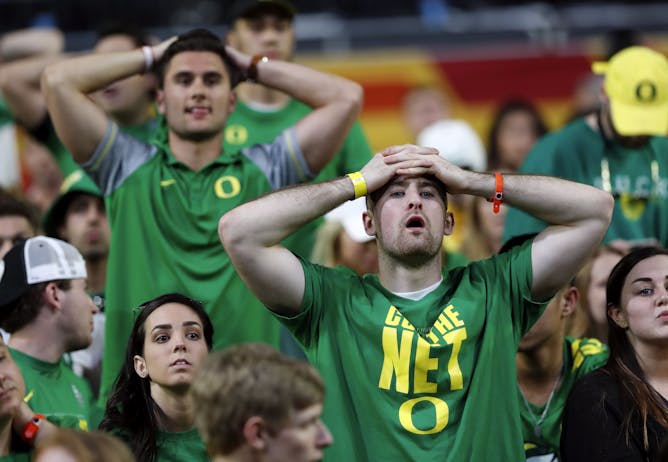
What surprises will this year’s tournament have in store?
AP Photo/Charlie Neibergall
Matthew Osborne, The Ohio State University; Kevin Nowland, The Ohio State University
Can a computer model correctly predict the results of the first round in this year's tournament? These mathematicians think so.
|
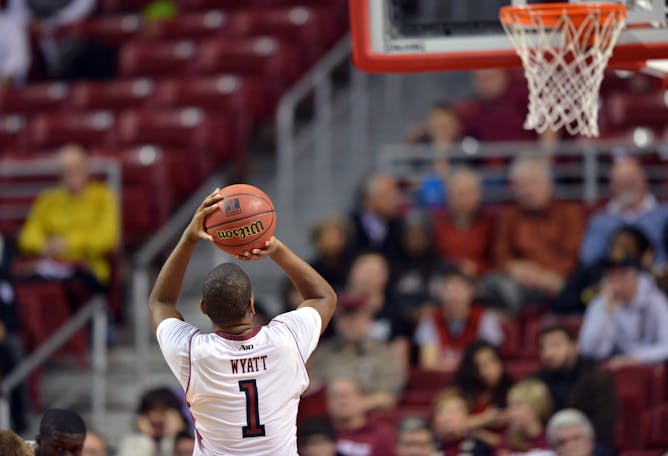
Small differences account for a shooter’s consistency.
Aspen Photo/shutterstock.com
Larry M. Silverberg, North Carolina State University
A basketball computer program simulates millions of trajectories in search of the ideal shot.
|
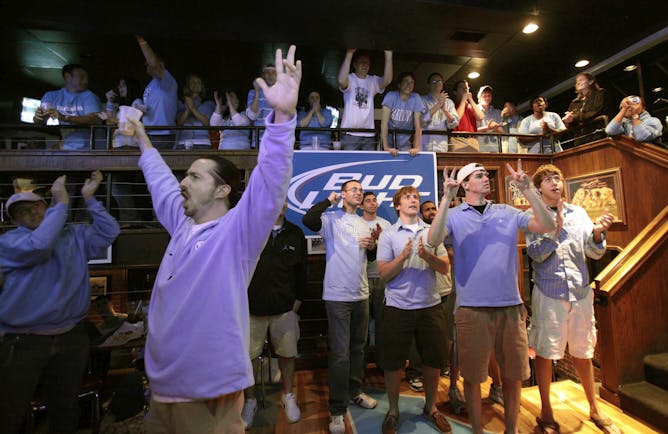
North Carolina fans react while watching the Tar Heels play in the 2009 Final Four.
Gerry Broome/AP
Dustin R. White, University of Nebraska Omaha; Benjamin Cowan, Washington State University; Jadrian Wooten, Pennsylvania State University
Binge drinking rises during March Madness among male college students who attend schools that made it to the men's basketball tournament. Researchers take a deeper look at the reasons why.
|
|
|
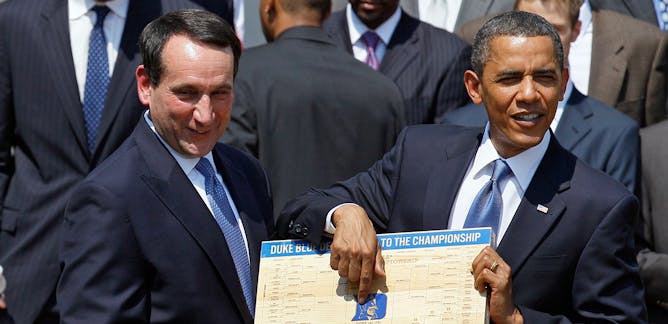
Jay L. Zagorsky, The Ohio State University
Every March, millions of Americans watch the NCAA's annual college basketball tournament, while millions more fill in brackets to win their office pool.
| |
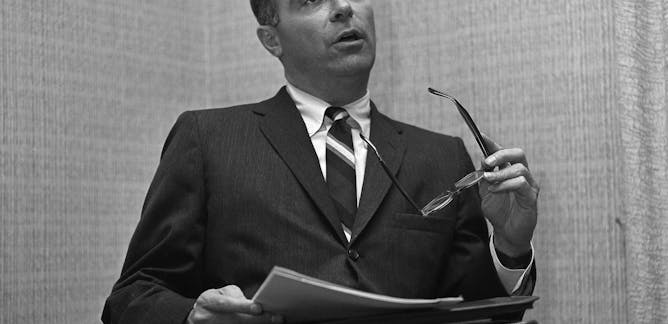
Rick Eckstein, Villanova University
In the 1950s, NCAA Executive Director Walter Byers coined the term 'student-athlete,' which laid the groundwork for the organization to reap the windfall from its annual basketball tournament.
|
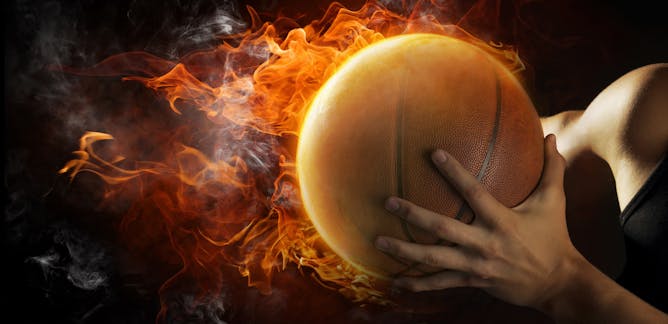
Joshua Miller, Bocconi University; Adam Sanjurjo, Universidad de Alicante
For 30 years, sports fans have been told to forget about streaks because the 'hot hand' is a fallacy. But a reanalysis says not so fast: Statistics show players really are in the zone sometimes.
| |
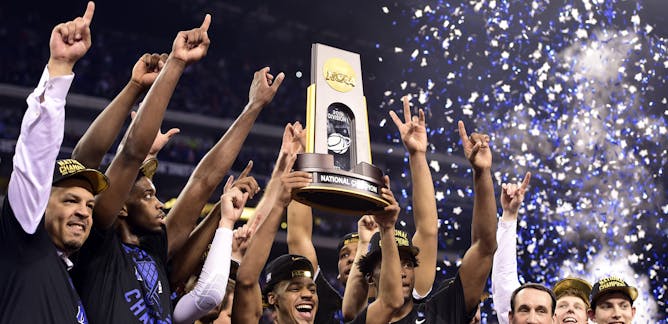
Dae Hee Kwak, University of Michigan
Simply filling out a bracket – even with random or uninformed choices – is enough to boost your confidence in success, and to get you to put more money on the line.
|
|
|